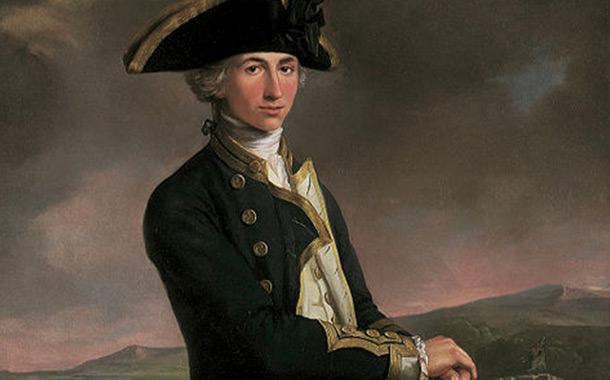<![CDATA[On the 29th September 1758, one of the most iconic figures in British history was born in Burnham Thorpe, England. The son of a village rector, Horatio Nelson would go on to become synonymous with Britain's naval might in the nineteenth century, and the country's dogged resistance in the Napoleonic Wars. His was a life filled with controversy and a disregard for authority however, that should not be forgotten when remembering this national hero. Nelson first joined the Navy aged twelve, as a midshipman. This is a poignant reminder of the continued prevalence of child labour in the eighteenth and nineteenth centuries, when childhood finished at a startlingly young age. Immediately he began a seafaring life, travelling the world's oceans. Nelson's ability as a military leader was apparent early on, and by the age of twenty he was made captain. His first tastes of combat came during the American Revolutionary War. France and Spain entered the conflict in support of the United States in an attempt to undermine Britain's growing imperial influence. The two nations provided military support to the Revolutionary forces in North America, as well as forcing Britain to divide its forces in order to protect the British Isles from invasion. Nelson distinguished himself in the conflict with raids on Spanish forces in Central America and the West Indies, disrupting their naval influence in the region. When war broke out with France, Nelson was given command of the Agamemnon, and stationed in the Mediterranean for several years. His ship was involved in the fighting around the Port of Toulon, and played an important role in the capture of Corsica from Napoleon's forces. During the campaign at Corsica, Nelson suffered the injury that led to him losing sight in his right eye. During his time in the Mediterranean, Nelson began to reveal the self confidence and disregard for authority that would prove to be a recurring theme throughout his life. In February 1797, he led an assault on a Spanish fleet off Cape St. Vincent in Portugal, to prevent them launching a surprise attack on the nearby British fleet. As well as being an incredibly daring move, Nelson was acting without orders, a bold action for a man in an institution as hierarchical as the British Navy. Despite the recklessness of the move, he was knighted and promoted to rear admiral for his actions. One of Nelson's greatest successes came at the Battle of the Nile, but it was followed by some of the greatest controversies in his life. At the battle in August 1798, Nelson succeeded in leading the British Navy in the destruction of the French fleet stationed in Egypt. The victory was pivotal as it stranded Napoleon and his army in North Africa. After the Battle of the Nile, Nelson was sent to Naples. In the Italian city, Nelson started a public affair with the wife of a British minister - Emma Hamilton. Despite Nelson himself also being married, he eventually fathered a child with Lady Hamilton in 1801, and abandoned his wife. On top of his infidelity, Nelson was also involved in the suppression of the Neapolitan Republic in 1799. King Ferdinand IV had fled the Italian Kingdom in January 1799 in the face of advancing French armies. After civil unrest and upheaval, the kingdom was declared a republic, albeit one heavily propped up by the French Army. Naples was a crucial port in the Mediterranean, one which the British were keen to control, so they supported Ferdinand in his attempts to regain power. Nelson's forces attacked the French troops in Naples, but also used heavy force against the Neapolitan Republicans. The exercise was a success, but Nelson received criticism in Parliament from Charles James Fox, who described the events as 'the atrocities at the bay of Naples.' Nelson's role and eventual death at the Battle of Trafalgar in 1805 are well documented. The British victory that he masterminded was crucial in protecting the United Kingdom from French invasion, and was a vital turning point in the war with Napoleon. Nelson's position as a national hero is reflected in some of London's most famous landmarks - Trafalgar Square and Nelson's Column. His roguish persona and rebellious streak are seen as a key part of his appeal, but his actions at Naples go beyond mere bold defiance of authority, and remain an uncomfortable footnote in the legend of this national icon. ]]>
The Birth of Horatio Nelson
